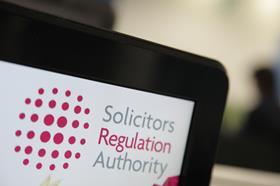Legal professional privilege extends beyond mere legal advice and includes the ‘continuum of communication’ between solicitors and their clients, the High Court heard today. The point was raised in an appeal the Solicitors Regulation Authority is bringing against George Fahim Sa’id after he was cleared of money-laundering compliance charges.

Sa’id, admitted in 1997, is accused by the SRA of failing to conduct an enhanced due diligence check over a transaction which had high-risk factors for money laundering. He was cleared of any wrongdoing in August last year. The SDT also decided to lift the anonymity which had been granted during the proceedings to Sa’id’s clients and businesses associated with them.
At the High Court today, the SRA appealed both aspects of the SDT’s decision. A hearing before Mrs Justice Thornton specifically addressed the question of anonymity.
The judge heard that the tribunal had concluded that anonymity did not apply, partly because the case was not about the underlying advice covered by privilege, but was about a failure of due diligence.
But Rory Dunlop KC, for the SRA, said a document did not have to contain legal advice for it to be covered by LPP.
Documents can be covered if they are ‘part of the necessary exchange of information of which the object is the giving of legal advice as and when appropriate, not necessarily immediately but somewhere in the continuum of communication,’ Dunlop said. He gave an example of when a person, covered by the anonymity order, had contacted Sa’id about the purchase of a house and provided an explanation of where the purchase money was coming from.
‘He is doing it because he understood he could not get legal assistance with purchasing the house if he offered no explanation at all over where the money is coming from,’ Dunlop said.
The Gazette has challenged the extent of the anonymity order the SRA is seeking, which would see numerous properties, companies and persons anonymised to protect LPP.
Dunlop cautioned the court against revealing too much information in its final judgment, adding: ‘People should be able to seek legal advice in relation to conveyancing transactions and make a clean breast of it, talking about how they got the money for this without worrying that at some point it it is all going to end up in the newspapers.’
Mrs Justice Thornton reserved judgment.


























